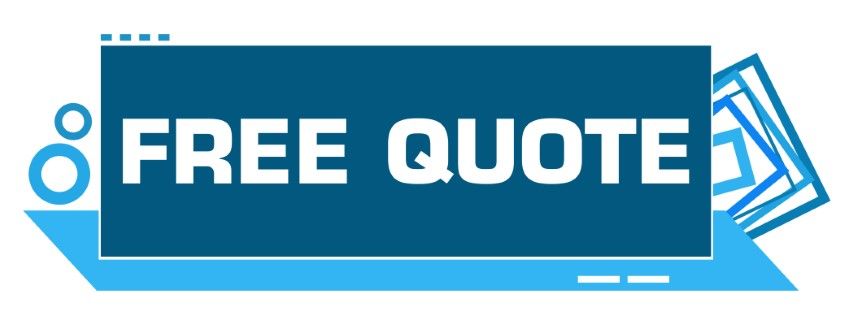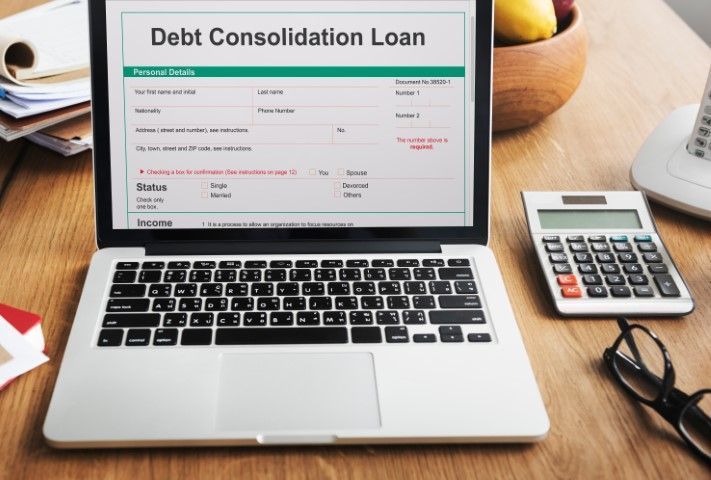CALL US NOW: (555) 555-5555
Debt Consolidation Loans
in Tucson AZ
Escape the Debt Trap: Consolidate and Reclaim Your Financial Peace!
Take the first step towards financial freedom →
Tucson Debt Consolidation
Debt consolidation loans play a crucial role in managing financial stress by simplifying multiple debts into one. Tthese loans are increasingly relevant as they offer a structured way to reduce debt load and improve financial stability. By combining several debts into a single loan, individuals can potentially lower their overall interest rates and streamline their payments, making it easier to manage their finances.
How It Works
Debt consolidation involves taking out a new loan to pay off existing debts. The new loan typically has a lower interest rate than the combined rates of the old debts. Once the old debts are paid off, you only need to make payments on the new loan. This approach can simplify your financial situation by reducing the number of payments you need to track and potentially lowering your monthly payment amount.
Types
- Personal Loans: These are unsecured loans offered by banks or credit unions. They usually have fixed interest rates and monthly payments.
- Balance Transfer Credit Cards: These cards offer a low or 0% introductory interest rate for transferring existing credit card balances. This can be a good option if you can pay off the balance before the introductory period ends.
- Home Equity Loans: These loans use your home’s equity as collateral. They can offer lower interest rates but come with the risk of foreclosure if you fail to make payments.
- Debt Management Plans (DMPs): Managed by credit counseling agencies, DMPs consolidate your debts into a single monthly payment with negotiated lower interest rates.
Benefits
Debt consolidation offers several benefits, including:
- Simplified Payments: Managing one loan payment instead of multiple debts can make budgeting easier.
- Lower Interest Rates: Combining debts can reduce the overall interest rate, saving you money over time.
- Improved Credit Score: Consistently making payments on a consolidated loan can help improve your credit score.
- Reduced Monthly Payments: A longer repayment term can lower your monthly payments, easing financial pressure.

We will get back to you as soon as possible.
Please try again later.
Drawbacks and Risks
While debt consolidation can be beneficial, it also has drawbacks:
- Potential for Higher Overall Costs: Extending the repayment period can increase the total amount of interest paid over the life of the loan.
- Risk of More Debt: Consolidating debt without addressing spending habits may lead to accumulating more debt.
- Fees and Costs: Some consolidation methods, like balance transfer credit cards, may involve fees.
- Impact on Credit Score: Applying for new credit can temporarily lower your credit score.
How to Qualify
To qualify for a debt consolidation loan, you generally need to meet the following criteria:
- Credit Score: A good credit score can improve your chances of approval and secure better terms.
- Income: Proof of stable income is required to demonstrate your ability to repay the loan.
- Debt-to-Income Ratio: Lenders will assess your debt-to-income ratio to ensure you can handle additional debt.
- Employment History: A stable employment history can also be important for approval.
Steps to Apply
- Evaluate Your Debts: List all your debts and their terms to understand what you need to consolidate.
- Research Options: Compare different debt consolidation loans to find the best rates and terms for your situation.
- Check Your Credit Score: Review your credit report to ensure it is accurate and to understand how it might affect your application.
- Gather Documentation: Prepare documents such as proof of income, employment verification, and information about your debts.
- Apply for a Loan: Submit your application to the lender of your choice. Be prepared to provide all required documentation.
- Review Terms: Carefully review the loan terms before accepting to ensure they meet your needs and understand any fees involved.
- Consolidate Your Debts: Once approved, use the loan to pay off your existing debts and start managing your new loan.
If you're ready to take control of your finances and simplify your debt management, our team is here to help. Contact us today to discuss your options and find the best
debt consolidation loan in Tucson, AZ for your needs. We're committed to providing personalized support to guide you through every step of the process.
Tips for Successfully Managing Debt Consolidation Loans
Debt consolidation loans can offer a practical solution for managing multiple debts by combining them into a single loan with a potentially lower interest rate. However, effectively managing these loans requires careful planning and strategic approaches. Here are some essential tips for successfully managing debt consolidation loans:
Understand Your New Loan Terms
Before committing to a debt consolidation loan, thoroughly review the terms and conditions. Understand the interest rate, repayment period, and any fees involved. Ensure that the new loan offers a tangible benefit over your existing debts, such as a lower interest rate or more manageable monthly payments.
Create a Realistic Budget
Develop a budget that reflects your current financial situation. Include your new loan payment along with your other expenses. A realistic budget helps you track your spending, avoid additional debt, and stay on top of your payments. Regularly update your budget to accommodate any changes in your income or expenses.
Make Consistent Payments
Timely payments are crucial for maintaining a positive credit history and avoiding additional interest or fees. Set up automatic payments if possible to ensure you never miss a due date. Consistency in payments will also help you pay off your loan faster and improve your credit score over time.
Avoid Accumulating New Debt
While consolidating your debt simplifies payments, it’s essential to avoid taking on new debt. Resist the urge to use credit cards excessively or apply for new loans. Focus on living within your means and use any additional funds to pay down your consolidation loan faster.
Monitor Your Progress
Regularly review your loan balance and overall financial status. Keeping track of your progress helps you stay motivated and make necessary adjustments. Consider using financial apps or tools to monitor your spending, track your loan balance, and stay informed about your financial health.
By following these tips, you can effectively manage your debt consolidation loan and work towards financial stability.

Options Beyond Debt Consolidation Loans
Managing debt can be overwhelming, and while debt consolidation loans are a common solution, they aren’t the only option. Here are several alternatives to consider, each with its own advantages and considerations.
Bankruptcy
Bankruptcy is a legal process that can help you eliminate or repay your debts under court supervision. It’s usually considered a last resort due to its significant impact on your credit score and the long-term implications on your financial future. There are different types of bankruptcy (Chapter 7, Chapter 13), each with its own rules and consequences.
Personal Loans
A personal loan from a bank or credit union can be used to pay off existing debts. These loans often come with fixed interest rates and monthly payments, which can make budgeting easier. However, the interest rate on personal loans can vary based on your credit score, and applying for one might require a good credit history.
Debt Settlement
Debt settlement involves negotiating with creditors to reduce the total amount of debt owed. This can be done through a debt settlement company or on your own. Settling debts can reduce the total amount you owe, but it can also negatively impact your credit score and may involve fees.
Balance Transfer Credit Cards
Balance transfer credit cards offer an opportunity to move high-interest credit card debt to a new card with a lower interest rate, often 0% for an introductory period. This can significantly reduce the amount you pay in interest. However, it's crucial to pay off the balance before the introductory period ends, as the interest rate will increase after that.
Debt Management Plans (DMPs)
A debt management plan is a structured program offered by credit counseling agencies. It involves consolidating your debts into a single monthly payment, which is distributed to your creditors. This plan may also lower your interest rates and waive fees. However, it requires discipline and commitment, and may affect your credit score temporarily.
Home Equity Loans or Lines of Credit
If you own a home, you might consider a home equity loan or line of credit. These options allow you to borrow against the equity in your home, often at lower interest rates than unsecured loans. However, using your home as collateral means that failing to repay could result in foreclosure.

Exploring alternatives to debt consolidation loans can help you find a solution that fits your financial situation and goals. Each option has its own benefits and drawbacks, so it’s important to consider all your choices and seek advice from financial professionals if needed.
LET'S CONNECT!
Our goal is to help you manage and reduce your debt more effectively. By consolidating multiple debts into a single loan, we simplify your payments and potentially lower your interest rates. Our experienced team works closely with you to understand your unique financial situation and tailor a consolidation plan that meets your needs. Whether you are dealing with credit card debt, personal loans, or other financial obligations, we are here to provide support and solutions. Contact us today to learn more about how we can assist you.